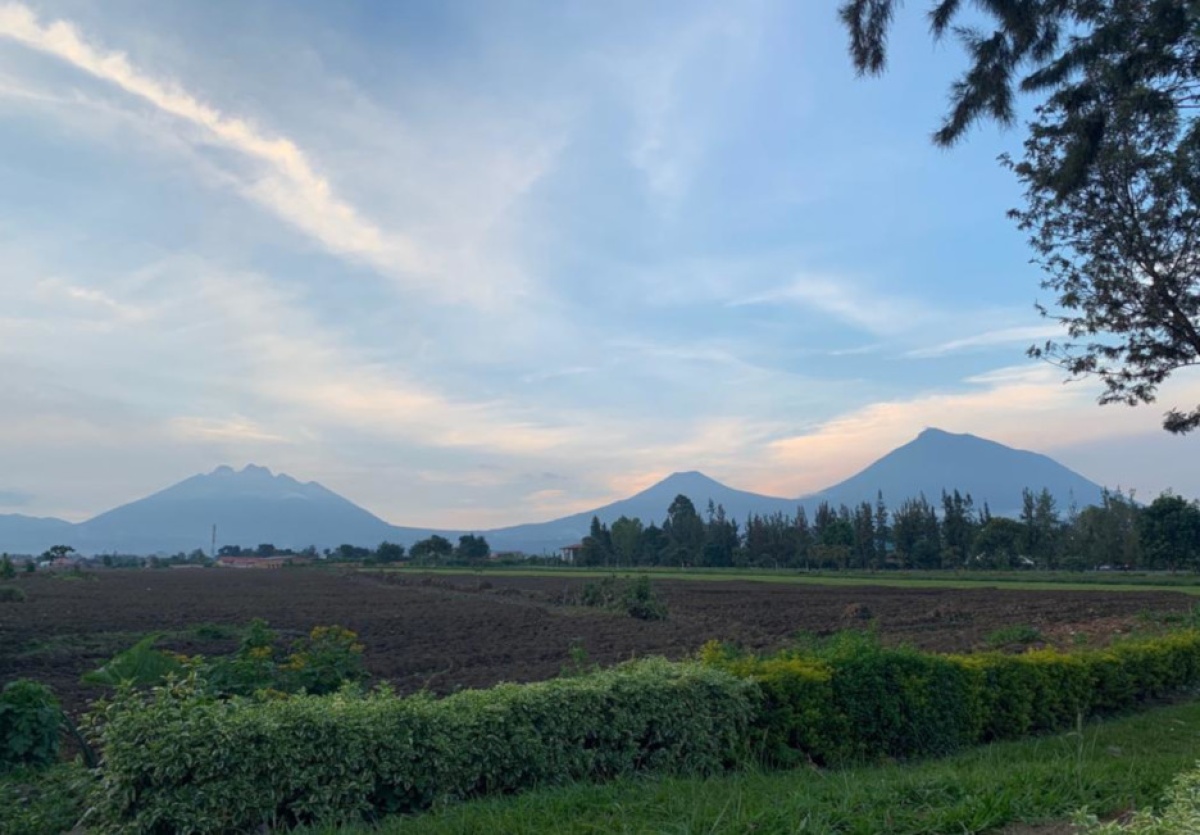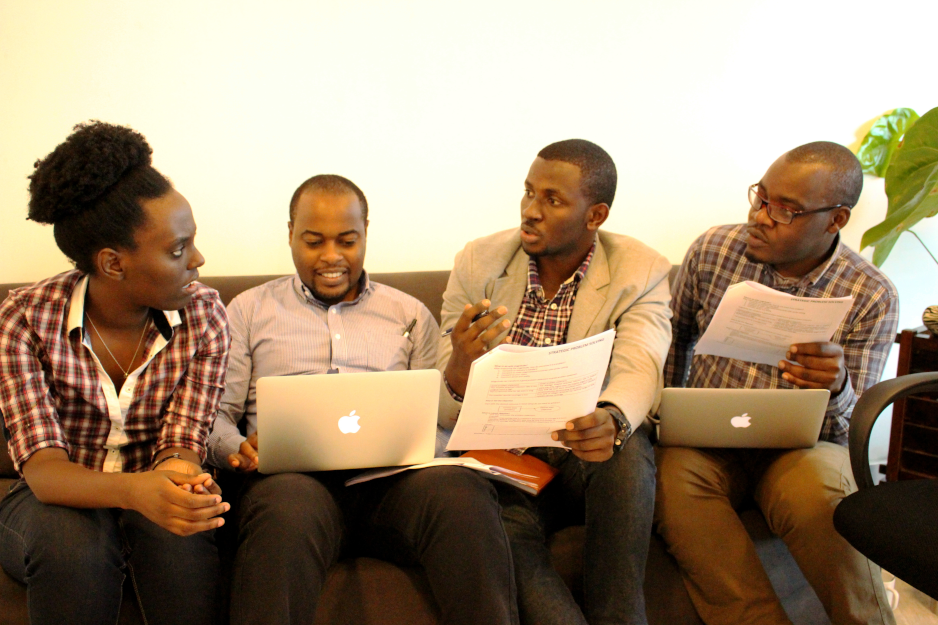UGHE Student Studies Soil-Related Disease Afflicting Farmers
Posted on Apr 23, 2019

Home to five of the eight volcanoes in the Virunga Mountains, the northern Rwanda district of Musanze hosts thousands of tourists each year. Musanze's location in the foothills of Volcanoes National Park is generating booms in business, tourism, and agriculture, but the rich, fertile land is also the source of one of the region’s neglected tropical diseases: podoconiosis.
Like many neglected tropical diseases (NTDs), podoconiosis is a disease of scarcity and often affects the most remote and poor communities. It’s characterized by severe swelling of the feet and legs and is caused by long-term, barefoot exposure to volcanic soils rich in silica—making Musanze’s geography highly conducive to the endemic disease.
Individuals with podoconiosis may suffer such extreme swelling that their feet and legs become disfigured. The disease, which is not widely understood, is often stigmatizing for those who develop it.
Four million people across 32 countries, mostly in tropical climates, are believed to have podoconiosis. In Rwanda alone, it is believed to affect about 69 of every 100,000 people. Until recently, though, the prevalence of the disease—and how to diagnose and treat it—had been relatively undocumented.
This pervasive gap in knowledge and reliable information galvanized Dr. Ursin Bayisenge, a student in the University of Global Health Equity’s (UGHE) Master of Science in Global Health Delivery program, to learn more. UGHE is an initiative of Partners In Health and located in Butaro, just 27 miles east of Musanze.
“I hadn’t heard of the term ‘podoconiosis’ until I started working at RBC,” said Bayisenge, who also is an NTD researcher at Rwanda Biomedical Centre in the country's capital, Kigali. “One of the first cases I worked on was a country-wide geographical mapping of the disease. This research proved that podoconiosis was prevalent in all 30 districts of Rwanda, but few people knew about it.
“I was shocked that so many people could be impacted,” he continued, “and yet clinicians and health professionals don’t understand it.”
Podoconiosis, a form of elephantiasis, is a chronic condition that often leaves people unable to walk. It's most prominent among Musanze’s subsistence farmers and others with routine exposure to soil. Prevention of podoconiosis includes protective footwear, but most subsistence families can’t afford to buy shoes. Informed medical professionals can diagnose podoconiosis without a test, and while no official treatment exists, symptoms can be alleviated through ointments, bandages, proper hygiene, and appropriate footwear. However, a lack of information about the disease—for medical professionals as well as patients—prevents proper diagnosis and access to care and treatment.
For Bayisenge, the decision to further investigate podoconiosis for his master’s capstone project at UGHE was easy. But he knew that a comprehensive assessment and subsequent intervention for podoconiosis control would require a different approach.
Each year, 12.6 million deaths worldwide are attributed to unhealthy environments, including soil. As part of a “systems” orientation to health, UGHE’s curriculum includes an approach known as One Health, which examines the complex links among humans, animals, and the environment. One Health brings a holistic approach to addressing the burden of disease, by broadening the perspective of specialists.
Applying this approach and building on the information collected through the RBC, Bayisenge used his practicum project to design and implement a knowledge, attitude, and practices—or KAP—survey on podoconiosis in Musanze, one of the Rwandan districts where the disease is most prominent. While clinicians play an important role in diagnosis, he knew that to better assess the community’s knowledge of the disease, his sample population would also have to include community health workers and environmentalists.
“Rwanda has a large workforce of community health workers who provide care and treatment at a patient’s house and have personal connections with remote community members,” explained Bayisenge. “Additionally, subsistence farmers frequently interact with the agriculture industry.
“Assessing both of these group’s KAP around podoconiosis is crucial to developing interventions that control the disease,” he added. “If well trained, community health workers and environmentalists could complement medical care by respectively managing and participating in prevention efforts of podoconiosis at the community level.”

Bayisenge’s research yielded expected responses. Of those who participated, very few people had heard of podoconiosis. Many, however, recognized the disease after being shown an image of its characteristics. Those who indicated meeting or treating an individual with podoconiosis acknowledged the patient’s intense isolation.
What Bayisenge hadn’t anticipated was respondents’ enthusiasm to be part of a solution. Respondents were eager to help support future prevention and management interventions.
By creating a baseline for understanding local knowledge about podoconiosis and attitudes toward people affected, Bayisenge hopes his study will raise awareness of the disease in Rwanda, thereby decreasing stigmatization and removing barriers to care.
“If people understand podoconiosis, they will not only give more support to those affected, but will help prevent it in those who are not yet affected.”

